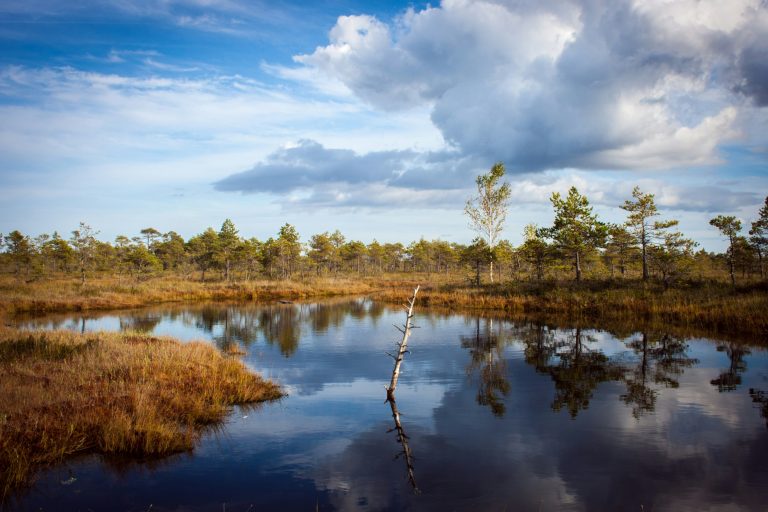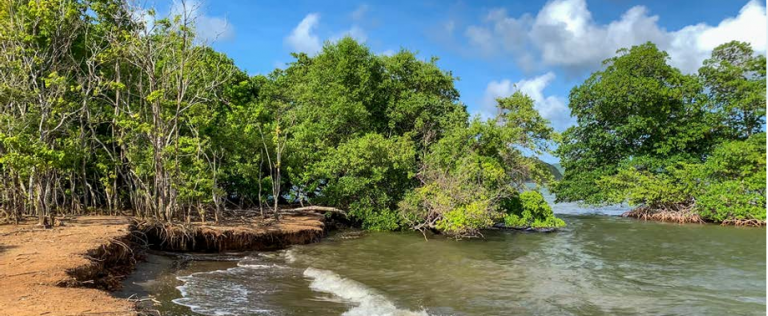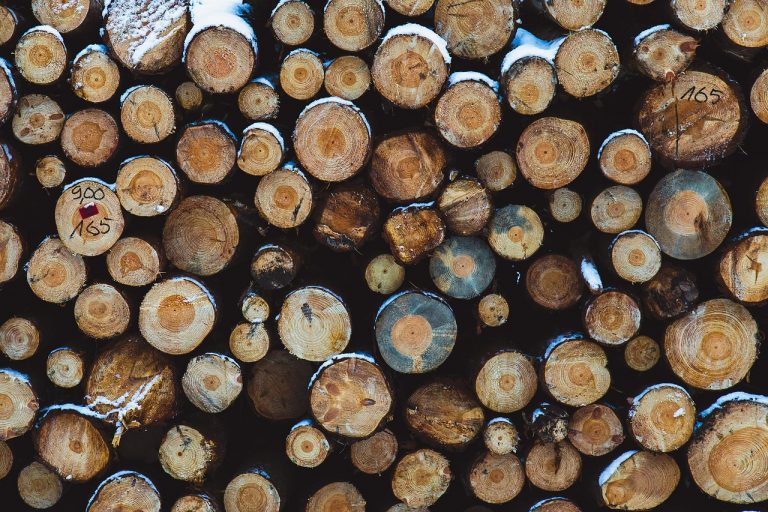Version française disponible sur ce lien
As part of the Support Programme for biodiversity Civil Society Organisations active in developing countries (ProBioDev), the Selection Committee met on June 25th and 26th in Paris to evaluate the proposals submitted following a call for proposals. In total, 11 projects were selected in 10 countries for a total amount of €1.9M.
On April 9th, the IUCN French Committee launched a call for proposals to support biodiversity conservation projects and/or Nature-based Solutions (NbS) carried out by civil society partnerships (comprising a French CSO and a local CSO) in developing countries.
By the end, 126 applications had been received. This is an excellent result for this first call, demonstrating the significant interest and need among CSOs for this type of funding mechanism to support biodiversity in developing countries. Out of the 126 applications, 37 were presented to the selection committee (the others were deemed ineligible or did not meet the criteria of the call for proposals).
Prior to the Selection Committee meetings, each application was reviewed by two independent evaluators who assessed the quality of the submitted projects according to various criteria (biodiversity issues and threats, relevance and coherence of the projects, organizational capacity to carry out actions, partnership coherence, etc.).
Held in Paris (with some evaluators participating remotely), the Selection Committee took place on June 25th and 26th , 2024, bringing together a total of 44 experts. During the Committee, each project was presented and then discussed among the evaluators and the other members. In addition to selecting the projects, the discussions also provided an opportunity to share expertise and suggestions for improvements for each proposal.
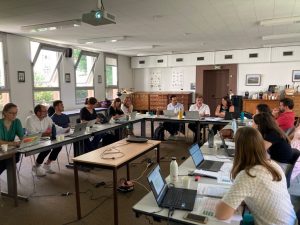
At the end of the two-day committee meeting, 11 projects were selected for a total amount of €1 891 000, with an average of approximately €172 000 per project.
Through these grants, with a maximum duration of 2 years, the civil society partnerships will have the common goal of implementing local biodiversity conservation projects and nature-based solutions through concrete on-the-ground actions. The projects will also support activities that benefit local populations.
The IUCN French Committee warmly thanks the members of the Selection Committee for their dedication and participation, which ensures the independence of the process, strengthens dialogue between organizations, and enhances the quality of the proposals and projects supported by ProBioDev. Congratulations to all the selected partnerships, and best of luck with the implementation of their projects!
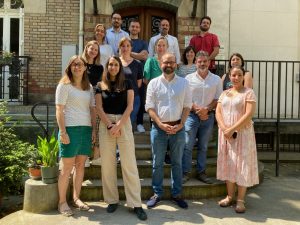
Supported by a coalition of public and private partners including the French development agency (AFD), French Office for Biodiversity (OFB), Audemars Piguet Foundation for Trees, Fondation de France, Fondation Manthano, Fondation Egis, and Maisons du Monde Foundation, the programme’s ambition is to improve the state of biodiversity in developing countries through the action of civil society and the strengthening of capacities and partnerships of CSOs.

Discover the selected projects!
The project aims to sustainably protect the largest wild population of greater bamboo lemurs (Prolemur simus, CR) by enhancing habitat conservation near Ranomafana National Park. Actions include reducing deforestation and wood cutting, mitigating conflicts with farmers, restoring forests, and creating a category 5 protected area. The project also focuses on improving the monitoring of several groups of greater bamboo lemurs and developing a scientific conservation program, enhancing knowledge of the lemur populations present, which will be used for the protected area creation process. Additionally, the project supports the economic and social development of local communities by promoting climate-resilient agriculture and supporting children’s education. The grant awarded by ProBioDev is €100 000 for a duration of 24 months.
The project aims to strengthen the resilience of Tanakeke Island in South Sulawesi by improving environmental management and community living conditions through SMILO’s Sustainable Island Labelling methodology. It aims to enhance local and inclusive governance by establishing an operational committee and defining a participatory action plan to build community capacity in environmental management. The project supports concrete initiatives such as the rehabilitation, monitoring, and conservation of mangroves and other key species, while promoting the sustainable development of seaweed cultivation to improve inhabitants’ living conditions. Blue Forests’ experiences on Tanakeke Island will be integrated and shared within the SMILO community, thereby strengthening their contributions to national and international biodiversity agendas. The grant awarded by ProBioDev is €195 000 for a duration of 24 months.
Located in the landscape of the Keta Lagoon Ramsar site, the project focuses on conserving bird species and their habitats, educating about the importance of wetlands for biodiversity and ecosystem services, and restoring and sustainably managing mangrove forests. The site plays a crucial role as an essential habitat for migratory birds and a nesting site for endangered marine turtle species. Planned actions include producing habitat maps and bird species lists, developing local capacity for bird identification and monitoring, and creating ecotourism opportunities benefiting local communities. The project will also train communities, especially women and youth, in sustainable management and restoration of degraded mangrove forests. The grant awarded by ProBioDev is €195 000 for a duration of 24 months.
Laos, a biodiversity hotspot, faces a significant biodiversity crisis with growing threats to its wildlife and ecosystems. The near-total lack of veterinary capacities, especially in conservation medicine, severely limits aid to wildlife facing increased human conflicts, illegal trafficking, and zoonotic risks. This project aims to strengthen the capacities of key Lao actors and establish an emergency response team for affected wildlife through the deployment of a mobile veterinary unit. The project team will also assess a population of semi-wild elephants using a One Health approach and establish positive relationships with the local community, laying the foundation for long-term collaboration for the protection of this elephant population. The mobile veterinary unit will also support other conservation efforts requiring field interventions. The grant awarded by ProBioDev is €195 000 for a duration of 24 months.
The Manyange Na Elombo Campo Marine Park is the largest Marine Protected Area (MPA) in Cameroon, established by the state for marine biodiversity conservation and supporting artisanal fishing. However, the park has not yet fully achieved its mission due to multiple pressures. This project aims to improve marine biodiversity protection and support the sustainable development of local communities in Campo through strengthening the MPA’s management and governance. Planned actions include improving knowledge of biodiversity and issues within the MPA to adapt management measures, strengthening artisanal fishing governance, raising stakeholder awareness of the MPA’s importance, and enhancing the value of artisanal fishing products. The grant awarded by ProBioDev is €238 000 for a duration of 24 months.
The project focuses on conserving the red-shanked douc (Pygathrix nemaeus, CR) in 7 Community Protected Areas (CPA) located in the Key Biodiversity Areas of Virachey and VeunSai-SiemPang National Parks. It actively engages authorities and scientific experts to support and promote local community participation in conserving this critically endangered species. Main actions include assessing the douc population and developing a participatory conservation plan, as well as improving the income of ethnic minorities through the commercialization of Malva nut-based forest products. The project also aims to protect the natural habitats of the red-shanked douc, combat poaching and illegal wildlife trade through strengthened law enforcement, joint patrols, and trap removal. It includes conservation awareness initiatives led by youth, sustainable use of natural resources, and equitable sharing of benefits from Malva nut conservation. The grant awarded by ProBioDev is €200 000 for a duration of 24 months.
The project aims to preserve the heritage flora of the Onilahy Valley in Madagascar by protecting endangered and micro-endemic plant species with the involvement of local communities. This initiative will collaborate with small community-based civil society organizations already active in managing the category 5 Protected Area in the region, as well as with NGOs engaged in environmental education projects. Partners will include local scientists from the University of Toliara and the villagers themselves. The conservation of these species will be ensured through the implementation of protection plans at the village or Protected Area level, while supporting the development of new income-generating activities in this economically fragile region. The grant awarded by ProBioDev is €104 000 for a duration of 24 months.
Abomey-Calavi, the second most populous city in Benin, is experiencing rapid urbanization, leading to a constant reduction of natural and agricultural spaces, soil artificialization, and a gradual loss of nature experiences. This process accelerates nature retreat, biodiversity loss, reduces agricultural production capacity, amplifies extreme weather events, and contributes to global warming. As part of a global urban nature initiative launched in January 2022, this project aims to transform Abomey-Calavi into a city where nature thrives, and people flourish. The project will implement Nature-based Solutions (NbS) to enhance the city’s climate mitigation and adaptation capacity, increase agricultural production while conserving local biodiversity, and stimulate human-nature reconnection. The grant awarded by ProBioDev is €200 000 for a duration of 24 months.
The project aims to strengthen the conservation of Socotra’s dragon’s blood tree (Dracaena cinnabari) forest, an emblematic species essential for the island’s fragile ecosystem, listed as a UNESCO World Heritage site and classified as Vulnerable by the IUCN. This species plays a crucial role as an umbrella species, providing protection to many other species on the island. The project actively involves local Bedouin sylvopastoral communities in forest regeneration and biodiversity conservation initiatives. Planned actions include creating sustainable community nurseries for artificial dragon’s blood tree regeneration and supporting natural reforestation. The project also includes awareness activities for local communities, schools, and travel agencies to promote dragon’s blood tree protection. Additionally, it envisions introducing beehives in the forest to produce and locally value dragon’s blood tree honey. The grant awarded by ProBioDev is €100 000 for a duration of 24 months.
The bonobo (Pan paniscus, EN) is a threatened great ape species endemic to the Democratic Republic of Congo. For over 25 years, Mbou-Mon-Tour (MMT) has developed an integrated community conservation approach focusing on local governance, awareness campaigns, monitoring of six bonobo communities, ecotourism, scientific research, and local development activities. For over 15 years, Bonobo ECO has been a key partner of MMT, particularly to foster a research-action approach. This project is structured around three main objectives: bonobo and biodiversity conservation, support for the creation of community forests, and support for local development actions. The two organizations aim to strengthen their partnership to increase on-the-ground impacts and promote the human-bonobo coexistence developed by MMT. The grant awarded by ProBioDev is €189 000 for a duration of 24 months.
The Andean Amazon, a global biodiversity hotspot, is also experiencing increasing agricultural expansion in the San Martin region of Peru, endangering biodiversity and local communities’ way of life. The Bosques de Vaquero Biocorridor, in the process of being recognized as a KBA (Key Biodiversity Area) and OECM (Other Effective Conservation Measures by Zones), is home to endangered endemic species like Summers’ poison frog (Ranitomeya summersi, EN) and faces significant threats. Three community associations are committed to conserving these forests they manage as Conservation Concessions. Following pilot actions carried out in 2022 by Nature Conserv’Action and Ararankha in collaboration with the communities, this project aims to deepen and enhance knowledge of reptiles and amphibians, strengthen autonomous and sustainable governance by creating citizen brigades responsible for biodiversity monitoring, and improve community well-being and promote coexistence with biodiversity by consolidating community and scientific ecotourism initiatives. The grant awarded by ProBioDev is €175,000 for a duration of 24 months.


